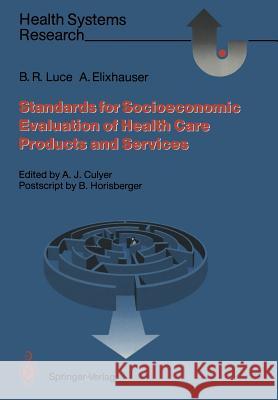Standards for the Socioeconomic Evaluation of Health Care Services » książka
Standards for the Socioeconomic Evaluation of Health Care Services
ISBN-13: 9783642754920 / Angielski / Miękka / 2011 / 184 str.
Over the past decades, health care delivery - once characterized by clearly defined relationships between medical professionals, regulators, and industr- has become much more complex. Traditional roles and relationships are changing and new decision-makers are entering the scene. They bring into the discussion the need for cost containment and the changing perceptions of the public with regard to the risks and benefits of health care outcomes. As benefits of medical care are increasingly questioned and as scepticism and fear of advanced technologies are demonstrated by a growing body of people, decision making must move beyond medical concerns to encompass economic, political, and sociological considera tions. This evolution has also affected the pharmaceutical industry. Public percep tion of responsibility for product safety is no longer limited to regulators and physi cians. Manufacturers, previously unencumbered by social policies, governmental preoccupations, or public expectations, are now held accountable for product safety. As a certain amount of risk acceptance is, however, a prerequisite for the further development of health care goods, it has to be carefully balanced against society'S demand for safety. To weigh risks against benefits, to define acceptable risk, and to exclude what no longer falls within this category remain perpetual challenges. Accordingly, health care outcomes have to be assessed not only from a clinical point of view, but also from an economic and societal perspective. The assessment of drug risks and benefits has become an important political issue world-wide."











